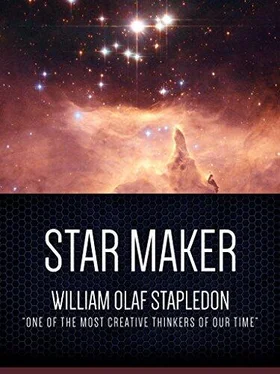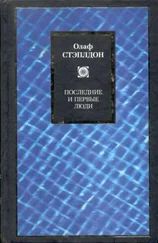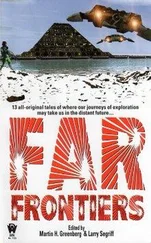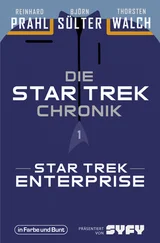By contrast with the remote galaxies, on whose appearance all my voyaging failed to make impression, the star-cluster ahead of me was now visibly expanding. Soon after I had crossed the great emptiness between the star-streams, my cluster confronted me as a huge cloud of brilliants. Presently I was passing through a more populous area, and then the cluster itself opened out ahead of me, covering the whole forward sky with its congested lights. As a ship approaching port encounters other craft, so I came upon and passed star after star. When I had penetrated into the heart of the cluster, I was in a region far more populous than any that I had explored. On every side the sky blazed with suns, many of which appeared far brighter than Venus in the Earth's sky. I felt the exhilaration of a traveler who, after an ocean crossing, enters harbors by night and finds himself surrounded by the lights of a metropolis. In this congested region, I told myself, many close approaches must have occurred, many planetary systems must have been formed. Once more I looked for middle-aged stars of the sun's type. All that I had passed hitherto were young giants, great as the whole solar system. After further searching I found a few likely stars, but none had planets. I found also many double and triple stars, describing their incalculable orbits; and great continents of gas, in which new stars were condensing. At last, at last I found a planetary system. With almost insupportable hope I circled among these worlds; but all were greater than Jupiter, and all were molten. Again I hurried from star to star. I must have visited thousands, but all in vain. Sick and lonely I fled out of the cluster. It dwindled behind me into a ball of down, sparkling with dew-drops. In front of me a great tract of darkness blotted out a section of the Milky Way and the neighboring area of stars, save for a few near lights which lay between me and the obscuring opacity. The billowy edges of this huge cloud of gas or dust were revealed by the glancing rays of bright stars beyond it. The sight moved me with self-pity; on so many nights at home had I seen the edges of dark clouds silvered just so by moonlight. But the cloud which now opposed me could have swallowed not merely whole worlds, not merely countless planetary systems, but whole constellations.
Once more my courage failed me. Miserably I tried to shut out the immensities by closing my eyes. But I had neither eyes nor eyelids. I was a disembodied, wandering view-point. I tried to conjure up the little interior of my home, with the curtains drawn and the fire dancing. I tried to persuade myself that all this horror of darkness and dis tance and barren incandescence was a dream, that I was dozing by the fire, that at any moment I might wake, that she would reach over from her sewing and touch me and smile. But the stars still held me prisoner.
Again, though with failing strength, I set about my search. And after I had wandered from star to star for a period that might have been days or years or aeons, luck or some guardian spirit directed me to a certain sun-like star; and looking outwards from this center, I caught sight of a little point of light, moving, with my movement, against the patterned sky.4 As I leapt toward it, I saw another, and another. Here was indeed a planetary system much like my own. So obsessed was I with human standards that I sought out at once the most earth-like of these worlds. And amazinsly earth-like it appeared, as its disc swelled before me, or below me. Its atmosphere was evidently less dense than ours, for the outlines of unfamiliar continents and oceans were very plainly visible.
As on the earth, the dark sea brilliantly reflected the sun's image. White cloud-tracts lay here and there over the seas and the lands, which, as on my own planet, were mottled green and brown. But even from this height I saw that the greens were more vivid and far more blue than terrestrial vegetation. I noted, also, that on this planet there was less ocean than land, and that the centers of the great continents were chiefly occupied by dazzling creamy-white deserts.
CHAPTER III
THE OTHER EARTH
1. ON THE OTHER EARTH
AS I slowly descended toward the surface of the little planet, I found myself searching for a land which promised to be like England. But no sooner did I realize what I was doing than I reminded myself that conditions here would be entirely different from terrestrial conditions, and that it was very unlikely that I should find intelligent beings at all. If such beings existed, they would probably be quite incomprehensible to me. Perhaps they would be huge spiders or creeping jellies. How could I hope ever to make contact with such monsters?
After circling about at random for some time over the filmy clouds and the forests, over the dappled plains and prairies and the dazzling stretches of desert, I selected a maritime country in the temperate zone, a brilliantly green peninsula. When I had descended almost to the ground, I was amazed at the verdure of the country-side. Here unmistakably was vegetation, similar to ours in essential character, but quite unfamiliar in detail. The fat, or even bulbous, leaves reminded me of our desert-flora, but here the stems were lean and wiry. Perhaps the most striking character of this vegetation was its color, which was a vivid blue-green, like the color of vineyards that have been treated with copper salts. I was to discover later that the plants of this world had indeed learnt to protect themselves by means of copper sulphate from the microbes and the insect-like pests which formerly devastated this rather dry planet.
I skimmed over a brilliant prairie scattered with Prussian blue bushes. The sky also attained a depth of blue quite unknown on earth, save at great altitudes. There were a few low yet cirrus clouds, whose feathery character I took to be due to the tenuousness of the atmosphere. This was borne out by the fact that, though my descent had taken place in the forenoon of a summer's day, several stars managed to pierce the almost nocturnal sky. All exposed surfaces were very intensely illuminated. The shadows of the nearer bushes were nearly black. Some distant objects, rather like buildings, but probably mere rocks, appeared to be blocked out in ebony and snow. Altogether the landscape was one of unearthly and fantastical beauty.
I glided with wingless flight over the surface of the planet, through glades, across tracts of fractured rock, along the banks of streams. Presently I came to a wide region covered by neat, parallel rows of fern-like plants, bearing masses of nuts on the lower surfaces of their leaves. It was almost impossible to believe that this vegetable regimentation had not been intelligently planned. Or could it after all be merely a natural phenomenon not known on my own planet? Such was my surprise that my power of locomotion, always subject to emotional interference, now began to fail me. I reeled in the air like a drunk man. Pulling myself together, I staggered on over the ranked crops toward a rather large object which lay some distance from me beside a strip of bare ground. Presently, to my amazement, my stupefaction, this object revealed itself as a plow. It was rather a queer instrument, but there was no mistaking the shape of the blade, which was rusty, and obviously made of iron. There were two iron handles, and chains for attachment to a beast of burden. It was difficult to believe that I was many light-years distant from England. Looking round, I saw an unmistakable cart track, and a bit of dirty ragged cloth hanging on a bush. Yet overhead was the unearthly sky, full noon with stars.
I followed the lane through a little wood of queer bushes, whose large fat drooping leaves had cherry-like fruits along their edges. Suddenly, round a bend in the lane, I came upon a man. Or so at first he seemed to my astounded and star-weary sight. I should not have been so surprised by the strangely human character of this creature had I at this early stage understood the forces that controlled my adventure. Influences which I shall later describe doomed me to discover first such worlds as were most akin to my own. Meanwhile the reader may well conceive my amazement at this strange encounter. I had always supposed that man was a unique being. An inconceivably complex conjunction of circumstances had produced him, and it was not to be supposed that such conditions would be repeated anywhere in the universe. Yet here, on the very first globe to be explored, was an obvious peasant. Approaching him, I saw that he was not quite so like terrestrial man as he seemed at a distance; but he was a man for all that. Had God, then, peopled the whole universe with our kind? Did he perhaps in very truth make us in his image? It was incredible. To ask such questions proved that I had lost my mental balance.
Читать дальше









![Олаф Стэплдон - Создатель звезд [сборник litres]](/books/433148/olaf-stepldon-sozdatel-zvezd-sbornik-litres-thumb.webp)


